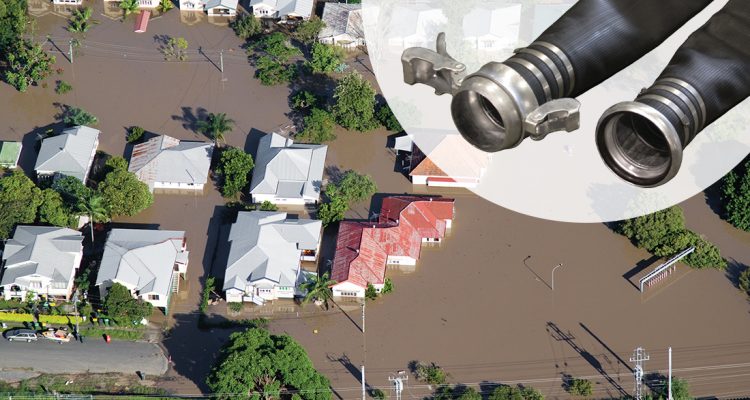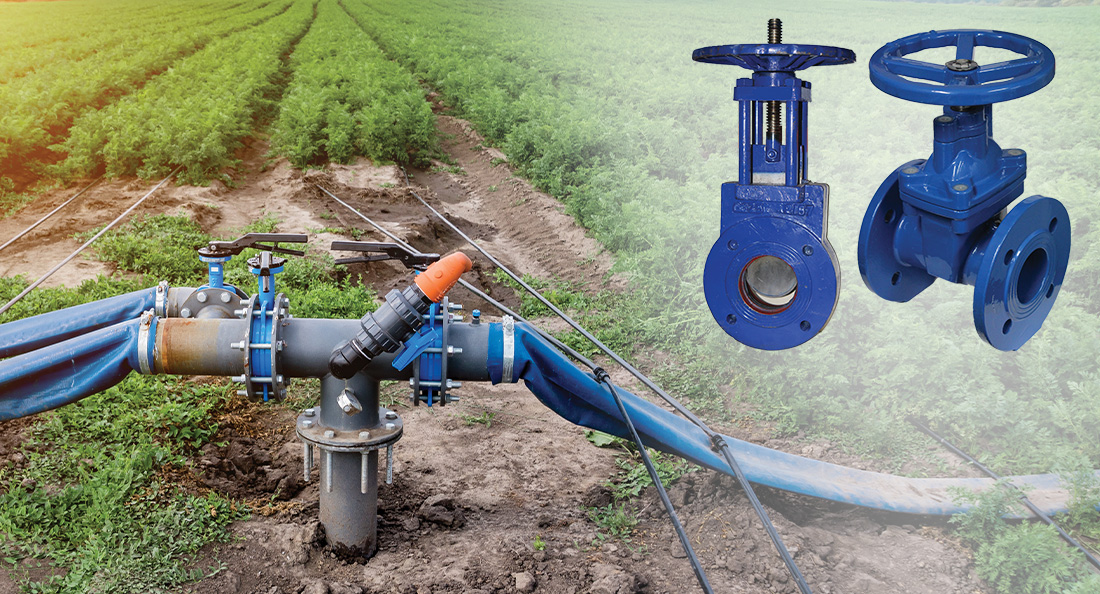During February and March of 2022, Queensland and Northern New South Wales have seen some of the most devastating floods on record. With little respite between periods of heavy rainfall, the team at AIP Brisbane are committed to delivering hose supply to their customers working on the dewatering effort.
“We have never witnessed anything like the enormity of these floods happening across the Eastern Seaboard,” says Troy Giggins, Category Manager for Industrial Hose and Connectors. “We have been working incredibly hard, trying to push out stock to customers who are responsible for getting roads reopened, as well as mines, apartment blocks, and town centres.”
He explains that AIP has a history of supplying critical hose assemblies to emergency sites, and acting quickly under pressure to rehabilitate vital infrastructure.
“Back in 2012, we were instrumental in a dewatering project at a Victorian power station. There was a river that bypassed a coal mine, that fed into the power station, and the wall dividing the two collapsed, so the mine became part of the river. It was disastrous, and we supplied seven kilometres of hose at that site, in the huge effort to keep power supply available to the state.”
When the heavy rains hit Lismore, many of AIP’s customers were required to mobilise extremely quickly, and needed product within a two day turnaround. According to Troy, all of the branches in Queensland, New South Wales and Victoria came together to offer support, in readiness for the aftermath and clean-up.
“Dewatering cannot begin until the water levels start to subside, otherwise you would just be pumping water to water,” he explains. “So, for example, when you’ve got an underground carpark that becomes flooded, that requires a lot of smaller pumps and hosing to move everything to the street or down a drain that isn’t already flooded.”
While clean-up and rehabilitation in these areas is underway, suppliers like AIP are remaining vigilant of a potential third wave, set to arrive well after the usual wet season. With over 20 years of experience at AIP, Troy is working to minimise risk ahead of time, and ensure that the business is set to spring into action when needed. He says that open communication with customers has proven crucial when preparing for unforeseen market demands.
“If there’s anything that Covid-19 and these natural disasters have taught us, it’s that forward-planning is absolutely critical,” he elaborates. “Part of my role is to coordinate the import of parts, and I am now having to do that 12 months in advance to contend with supply chain issues. We have gotten very good at activating when emergencies occur, and a lot of our larger customers rely on us for that.”
“One undeniable aspect of that is increasing stock holdings,” he continues. “When something gets blown out from four to ten months lead time, there is not much you can do other than be better prepared for next time. So we have gotten very good at being flexible and adapting with little notice. Certainly, observing the increasingly unpredictable major weather patterns will come into play even more.”
While the Queensland head office and workshops are central to most of the flooded areas, 2022 has presented its own challenges surrounding stock transport and order fulfilment capacity. Such a widespread need for hosing equipment has meant that other AIP branches have turned their attention to meeting this demand. Vanessa Needham, Branch Manager at AIP Victoria, has been instrumental in this collaborative effort.
“Down here in Victoria, we are heavily focused at the moment on supplying our northern branches. When the roads between Brisbane and Sydney were blocked, the only way to get supply to some of those flooded areas was to drive it up from here. At the end of the day, you can be incredibly proactive and still be under immense pressure when disaster like this arrives.”
She explains that washdown and pumping water from low-lying areas is just one aspect to the overall clean-up process, and having such a diverse stock portfolio is what gives AIP an edge to cover all bases for their customers.
“We have been assembling hundreds of hoses, crimping layflat, getting it all packaged up and transported to where it needs to go. They could be doing anything from pumping rainwater that is blocking drains, to civil emergencies like burst sewer pipes. Then they also have to deal with the debris that is left after the washdowns, which can cause even more blockages in the drains.”
Troy adds that AIP intentionally sources from a diverse global manufacturing network, to minimise delay risks. This adds to their overall flexibility when it comes to balancing demand, accounting for the increasing likelihoods of freight delays and natural disaster.
“It is extremely tough work, but at the end of the day we are doing our best to help, and that is very rewarding,” he reflects. “It becomes an entire mobilisation across all of our branches to do everything we can – and we will always make that commitment not only to our customers, but to our broader community as well.”




